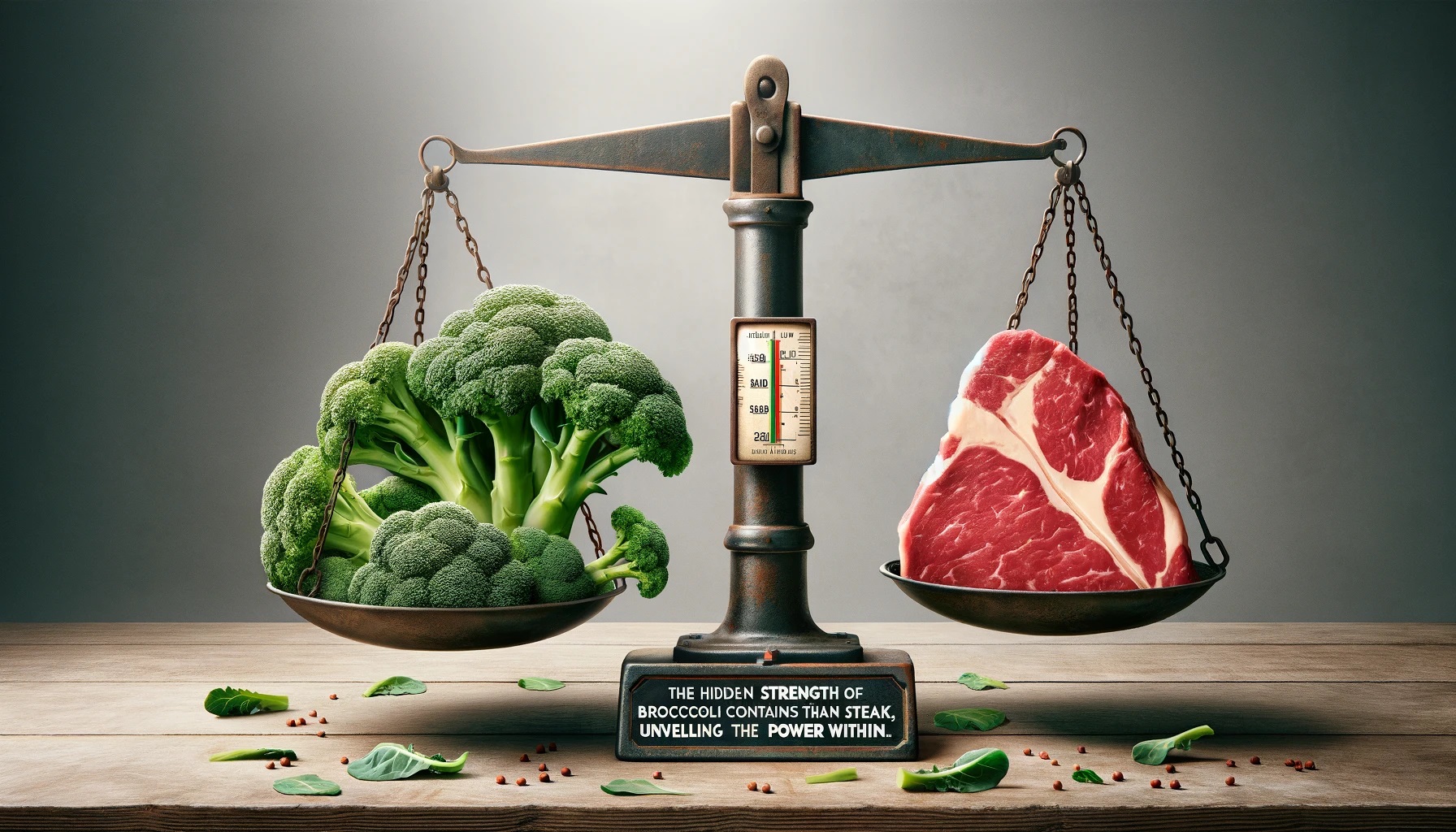· nutrition · 17 min read
Raw Cruciferous Vegetables and Thyroid Health
Explore the complex relationship between the consumption of raw cruciferous vegetables and thyroid health. Uncover the nutritional benefits, risks, and dietary recommendations for optimal thyroid function.

In This Post
The Fact Why Should I Care How To Put In Action Start Tomorrow Guide How does it effect my ability to focus How does it impact my daily life How does it help me make friends How does it help me manage stress How does it effect my mood Summary: Remember Refresher Checklist The Full Research Article CitationsPrint Out The Tomorrow Checklist!
Sign up for our newsletter and receive a copy today, so that, you can start tomorrow! Or the next day, or the day after that. I forget everything and starting things is hard at least for me so these checklists are godsend.
Print Out The Remember Refresher Checklist!
Sign up for our newsletter and download your own copy of the Remember Refresher Checklist, so that, you can easily put it on your fridge and help you stay on target towards your WHY. Every little bit helps.
Introduction
The thyroid gland plays a pivotal role in regulating metabolism, energy generation, and hormonal balance within the body. Understanding its function and how certain foods influence its operation is vital for maintaining overall health. In this context, cruciferous vegetables—broccoli, cauliflower, kale, and others from the Brassica family—come under scrutiny due to their goitrogenic properties. These compounds can impact thyroid function, particularly when these foods are consumed raw. Hence, the discussion about raw cruciferous vegetables and thyroid health opens a window to a larger conversation about diet, nutrition, and endocrine health.
Understanding Thyroid Function and Dietary Influences
The thyroid gland produces hormones crucial for metabolism, growth, and body temperature regulation. For optimal function, the thyroid needs dietary iodine since iodine uptake is a critical step in the production of thyroid hormones. However, certain foods contain goitrogens, substances that can interfere with iodine absorption and thus, thyroid hormone production.
Here’s a basic checklist to understand how diet influences thyroid function:
- Iodine Intake: Adequate dietary iodine is essential for thyroid hormone synthesis.
- Goitrogenic Foods: Some foods contain substances that interfere with iodine uptake, potentially affecting thyroid health.
- Nutritional Balance: A balanced diet supports thyroid and overall endocrine health, emphasizing the importance of not overly consuming goitrogenic foods like raw cruciferous vegetables.
Understanding the equilibrium between nutrient intake and avoiding excessive consumption of certain foods can help in managing thyroid health effectively.
Importance of Knowing How Certain Foods Affect the Thyroid
Awareness of how specific foods impact thyroid function is critical, especially for individuals with thyroid conditions like hypothyroidism, autoimmune thyroid disorders, or iodine deficiency. For instance, cruciferous vegetables are high in nutritional benefits but also contain goitrogens. This duality presents a dilemma: how to balance the inclusion of these vegetables in a diet while managing thyroid health.
A deeper dive into the relationship between dietary choices and thyroid function reveals a complex interplay of factors:
- Goitrogens and Thyroid Function: Goitrogens in cruciferous vegetables can inhibit iodine uptake, necessary for thyroid hormone production.
- Nutritional Benefits vs. Risks: These vegetables offer significant health benefits, including cancer-fighting properties and high levels of vitamins and minerals, necessitating a balanced approach to consumption.
- Personal Health Status: Individuals with existing thyroid dysfunction or iodine deficiency need to be more cautious with their dietary choices.
In summary, understanding thyroid function and the dietary influences on its operation is fundamental for anyone looking to maintain or improve their thyroid health. Recognizing the role of cruciferous vegetables and their effects—both beneficial and potentially inhibitory—on the thyroid is an essential part of this knowledge. As we delve deeper into the relationship between goitrogens and thyroid health in the following sections, the goal remains to empower readers with information that supports making informed dietary choices for optimal health.
What Are Goitrogens?
Goitrogens Explained
Goitrogens are substances that can disrupt the production of thyroid hormones by interfering with iodine uptake in the thyroid gland. The thyroid is a small, butterfly-shaped gland in your neck, and it plays a major role in regulating your metabolism through the release of hormones. For your thyroid to function properly, it needs iodine. Goitrogens can lower the amount of iodine that gets into the thyroid, which might lead to an enlarged thyroid or goiter and other thyroid dysfunctions.
The relationship between goitrogens and thyroid health is a key concern, especially for those with existing thyroid disorders. While the body usually manages to maintain a balance, overexposure to goitrogens can pose risks to thyroid health, leading to hormonal imbalance, reduced thyroid hormone production, and in some cases, hypothyroidism.
Sources of Goitrogens: Beyond Cruciferous Vegetables
While cruciferous vegetables like broccoli, cauliflower, and kale are well-known sources of goitrogens, they aren’t the only foods that contain these substances. Let’s explore some other sources that might surprise you.
- Soy products: Soybeans and soy-based products are among the most potent sources of goitrogens. Soy contains substances known as isoflavones that can interfere with thyroid function, especially in individuals with an iodine deficiency.
- Peanuts: Often overlooked, peanuts also contain goitrogenic compounds. While they’re not as potent as those found in cruciferous vegetables and soy, they can still contribute to goitrogen intake.
- Gluten-containing grains: For individuals with autoimmune thyroid disorders, like Hashimoto’s thyroiditis, gluten can worsen thyroid dysfunction. Gluten isn’t directly goitrogenic but can lead to increased autoimmune activity against the thyroid gland in sensitive individuals.
- Sweet Potatoes: Despite their many health benefits, sweet potatoes also contain goitrogenic compounds. However, the effects are often minimal and only pose a risk with excessive consumption.
Checklist: Managing Goitrogen Intake in Your Diet
- Incorporate a variety of foods to ensure a balanced diet and avoid overconsumption of goitrogens.
- Opt for cooked over raw cruciferous vegetables to reduce goitrogen content.
- If you have a thyroid condition, consider monitoring your soy and peanut intake.
- Be mindful of potential gluten sensitivity if you have an autoimmune thyroid disorder.
- Remember that moderation is key – a balanced diet with a variety of nutrients can help manage thyroid health effectively.
Understanding the sources and effects of goitrogens is essential for anyone looking to maintain optimal thyroid health. Beyond cruciferous vegetables, being aware of other potential goitrogenic foods can help in managing your diet more effectively, especially for those with thyroid dysfunction or an increased risk of iodine deficiency. Remember, it’s all about balance and moderation to support your thyroid function and overall health.
Effects of Goitrogens on Thyroid Health
How Goitrogens Impact Thyroid Function
Goitrogens are substances that can interfere with the way your thyroid gland works. Your thyroid gland is like the manager of your metabolism. It tells your body how fast or slow to go by releasing thyroid hormones. But when goitrogens come into play, they can mess with this process.
Goitrogens can make it harder for your thyroid gland to create these essential hormones by interfering with iodine uptake, a key ingredient in thyroid hormone production. Imagine trying to bake a cake without sugar; it just wouldn’t be the same. Similarly, without enough iodine, your thyroid can’t produce the hormones your body needs to keep things running smoothly.
This interference can lead to a condition called hypothyroidism, where your thyroid isn’t making enough hormones, making you feel tired, cold, or causing weight gain. In trying to catch up, your thyroid might grow larger, leading to a condition known as goiter.
The Role of Iodine Uptake Inhibition
Iodine uptake is critical for thyroid hormone production. When goitrogens block this process, it’s like a factory running low on raw materials. This shortage can slow down the production line of thyroid hormones, impacting your body’s overall function.
Identifying At-Risk Populations for Thyroid Disruption
Certain groups of people might be more vulnerable to the effects of goitrogens on thyroid function. Here’s a quick checklist to help identify if you might be at risk:
[] Individuals with existing thyroid conditions: If you already have issues like hypothyroidism or an autoimmune thyroid disorder, goitrogens could worsen your condition.
[] People with iodine deficiency: Without enough dietary iodine, your risk of thyroid dysfunction increases when consuming goitrogens.
[] Vegetarians and vegans: Since plant-based diets rely heavily on vegetables, including cruciferous ones, those following these diets might ingest more goitrogens.
[] Individuals with a family history of thyroid conditions: If thyroid issues run in your family, you might be more sensitive to the effects of goitrogens.
Understanding your risk can help you make informed decisions about your diet and health. If you fall into one of these categories, don’t worry. There are ways to manage your diet to support your thyroid function while still enjoying the nutritious benefits of cruciferous vegetables.
In summary, while goitrogens found in cruciferous vegetables and other sources can impact thyroid health by interfering with iodine uptake, it’s mainly a concern for those at risk of thyroid dysfunction. Awareness and knowledge about these effects can empower individuals to make dietary choices that support their thyroid health, balancing the incredible nutritional benefits of these vegetables with their potential impact on the thyroid gland.
Exploring Cruciferous Vegetables
Nutritional Benefits of Cruciferous Vegetables
Cruciferous vegetables, like broccoli, cauliflower, and kale, offer impressive nutritional benefits. They are rich in vitamins, minerals, fiber, and antioxidants, which can support overall health and prevent diseases. These veggies are especially known for their high levels of vitamin C, vitamin K, and folate, as well as phytonutrients that can reduce inflammation and protect against cancer.
List of Common Cruciferous Vegetables and Their Goitrogen Levels
Cruciferous vegetables are part of the Brassica family and include:
- Broccoli: Moderate in goitrogens
- Cauliflower: Moderate in goitrogens
- Kale: High in goitrogens
- Cabbage: Moderate in goitrogens
- Brussels sprouts: High in goitrogens
These vegetables contain various levels of goitrogens, which can interfere with thyroid function by inhibiting iodine uptake.
Balancing Nutritional Benefits with Thyroid Health
While cruciferous vegetables offer a myriad of health benefits, it’s essential to balance their consumption, especially for individuals with thyroid dysfunction. Here’s a checklist to help balance the nutritional benefits with thyroid health:
- Monitor Your Consumption: Keep track of how much and how often you consume cruciferous vegetables.
- Cook Your Veggies: Cooking can reduce the goitrogenic effect of these vegetables.
- Maintain a Varied Diet: Ensure a well-rounded diet that includes a variety of fruits and vegetables.
- Consult with a Healthcare Professional: Especially if you have a thyroid condition, to tailor dietary recommendations.
Cooking vs. Raw Consumption and Effects on Goitrogens
The method of preparation can impact the goitrogenic effects of cruciferous vegetables. Cooking these vegetables significantly reduces their goitrogenic compounds, making them safer for consumption for those with thyroid issues. Methods like steaming, boiling, and fermenting can decrease goitrogens, enhancing the thyroid-compatibility of these nutrient-packed vegetables.
In conclusion, while cruciferous vegetables contain goitrogens that may affect thyroid function, their nutritional benefits can still play a vital role in a healthy diet. By monitoring intake, cooking vegetables to reduce goitrogen levels, and maintaining a varied diet, individuals can enjoy the health benefits of cruciferous vegetables without compromising thyroid health.
Managing Diet for Optimal Thyroid Health
Eating right plays a crucial role in maintaining thyroid health, especially for those living with thyroid conditions such as hypothyroidism or autoimmune thyroid disorders. This section offers dietary recommendations aimed at fostering a balance, ensuring your thyroid functions well, and incorporating cruciferous vegetables safely into your meals.
Dietary Recommendations for Individuals with Thyroid Conditions
When managing a thyroid condition, diet can significantly impact your thyroid health. A well-balanced diet that supports thyroid function includes a variety of nutrients. Paying close attention to iodine, selenium, and zinc intake is particularly important, as these trace elements are vital for thyroid hormone production and metabolism. However, it’s crucial to avoid excessive intake of goitrogens, substances that can interfere with thyroid function, commonly found in cruciferous vegetables like broccoli, cauliflower, and kale.
How to Safely Include Cruciferous Vegetables in Your Diet
Cruciferous vegetables are known for their nutritional benefits, including high levels of vitamins, minerals, and fiber. Yet, their goitrogens content sparks concern regarding thyroid health. Here’s how you can safely include them in your diet:
- Moderation is Key: Enjoy these vegetables in moderate amounts. A few servings per week can be beneficial without posing significant risk to your thyroid health.
- Cook Your Veggies: Cooking significantly reduces the goitrogenic effect of cruciferous vegetables. Steaming, boiling, or roasting can help minimize their impact on thyroid function.
- Balance Your Diet: Ensure your diet is well-rounded with a variety of foods. Include fruits, vegetables, lean proteins, and whole grains to support overall health and thyroid function.
Iodine and Thyroid Health: Ensuring Adequate Intake
Iodine is a crucial nutrient for thyroid health, as it’s a key component of thyroid hormones. An iodine deficiency can lead to thyroid dysfunction and goiter. Yet, too much iodine can also have adverse effects. Here’s a quick checklist for ensuring adequate iodine intake:
- Use iodized salt in moderation.
- Incorporate seafood and dairy products, as they are natural iodine sources.
- Consider a multivitamin containing iodine if your diet lacks natural sources.
When to Consult a Healthcare Professional
It’s essential to work closely with a healthcare professional, especially if you have or suspect a thyroid disorder. They can provide personalized dietary guidelines and monitor your thyroid function. Consult a healthcare professional if:
- You experience symptoms of thyroid dysfunction, such as fatigue, unexplained weight changes, or mood fluctuations.
- You’re unsure about your dietary iodine or overall nutrient intake.
- You want to make significant changes to your diet or include supplements.
Conclusion
Managing your diet for optimal thyroid health doesn’t have to be daunting. By understanding the influence of cruciferous vegetables and other dietary components on thyroid function, you can make informed choices. Remember, moderation, variety, and balance are key. Incorporating a range of nutrients while maintaining a cautious approach to goitrogens and ensuring adequate iodine intake can support thyroid health effectively. Always consult healthcare professionals for personalized advice, particularly when managing thyroid conditions.
FAQs
In this section, we aim to address some of the most frequently asked questions related to raw cruciferous vegetables and their impact on thyroid health. Understanding these aspects is crucial for individuals dealing with thyroid issues or looking to maintain optimal thyroid function.
Can Cooking Cruciferous Vegetables Reduce Their Goitrogenic Effect?
Yes, cooking cruciferous vegetables can significantly reduce their goitrogenic effect. Goitrogens are substances that can interfere with thyroid function by inhibiting iodine uptake, a critical component in the production of thyroid hormones.
- Boiling: Boiling seems to be one of the most effective methods in reducing goitrogens. It allows the water-soluble goitrogens to leach out into the water.
- Steaming: Steaming for a brief period can also reduce the goitrogenic compounds, though not as much as boiling. However, it has the advantage of preserving more nutrients compared to boiling.
- Fermenting: Fermentation can reduce goitrogenic substances in vegetables like cabbage, making sauerkraut a better option for those concerned about thyroid health.
Incorporating these cooking methods can help you enjoy the nutritional benefits of cruciferous vegetables without adversely affecting your thyroid.
How Much Raw Cruciferous Vegetables is Safe to Consume Daily for Someone with Thyroid Issues?
The safe amount of raw cruciferous vegetables can vary significantly among individuals with thyroid issues, largely depending on the severity of their condition and overall diet. Generally, moderate consumption is key.
- General Guideline: As a rule of thumb, eating 1-2 servings of raw cruciferous vegetables a few times a week is considered safe for most people with thyroid conditions, provided they have a balanced diet rich in iodine.
- Individual Consideration: It’s essential to monitor your own body’s reaction and consult with a healthcare professional to tailor dietary choices to your specific needs.
Are There Non-Cruciferous Vegetables That Individuals with Thyroid Issues Should Avoid or Limit?
While cruciferous vegetables receive the most attention for their goitrogenic properties, there are other foods and non-cruciferous vegetables that those with thyroid issues might need to moderate.
Checklist: Foods to Moderate for Optimal Thyroid Health
- Soy Products: Soy contains isoflavones, which have been shown to affect thyroid function by blocking iodine uptake.
- Peaches, Pears, and Strawberries: Although not vegetables, these fruits have been identified to contain goitrogenic substances.
- Spinach and Sweet Potatoes: These vegetables contain moderate amounts of goitrogens and should be eaten in moderation, especially if consumed raw.
Remember, the key to incorporating these items into a thyroid-friendly diet is moderation and ensuring a well-rounded intake of essential nutrients, particularly iodine. It’s also crucial to maintain regular check-ins with your healthcare provider to adjust your diet according to your thyroid health status.
Conclusion
As we reach the conclusion of our in-depth exploration concerning raw cruciferous vegetables and thyroid health, it’s crucial to synthesize the key points we’ve delved into throughout this comprehensive guide. Understanding the nuanced relationship between diet and thyroid function is vital, especially considering the pivotal role that thyroid hormones play in regulating our metabolic rate, energy levels, and overall hormonal balance.
Cruciferous vegetables, while packed with nutritional benefits such as vitamins, minerals, and antioxidants, also contain goitrogens. These compounds can interfere with iodine uptake, potentially affecting thyroid health by inhibiting the production of thyroid hormones. This can be particularly concerning for individuals with pre-existing thyroid conditions such as hypothyroidism or autoimmune thyroid disorders. However, it’s essential to remember that the body’s response to dietary goitrogens is complex, influenced by various factors such as the overall dietary iodine, cooking methods, and individual susceptibility.
To navigate this complex terrain, here’s a simple checklist to aid those seeking to balance the nutritional benefits of cruciferous vegetables with maintaining optimal thyroid health:
Incorporate a Variety of Vegetables: Aim for a balanced diet that includes a wide range of vegetables, not just those from the cruciferous family. This ensures you’re not over-consuming goitrogens and missing out on other vital nutrients.
Cook Cruciferous Vegetables: Cooking can significantly reduce goitrogenic compounds in these vegetables, making them safer for consumption, especially for those with thyroid issues.
Monitor Iodine Intake: Ensure your diet provides sufficient iodine, a crucial nutrient for thyroid hormone production. Seafood, dairy products, and iodized salt are good sources.
Consider Thyroid-Friendly Supplements: Supplements like selenium and zinc can support thyroid health. However, consult with a healthcare professional before starting any new supplement regimen.
Seek Professional Guidance: If you have thyroid issues or suspect you might, it’s always best to consult a healthcare professional. They can provide personalized advice based on your health status.
It’s important to remember that while nutrition plays a crucial role in our health, it’s only one piece of the puzzle. Factors such as stress, sleep quality, and physical activity also significantly impact thyroid function and overall well-being. Therefore, adopting a holistic approach to health that addresses these various aspects is key to thriving.
In conclusion, the conversation around raw cruciferous vegetables and thyroid health underscores the importance of an informed, balanced approach to diet. By being mindful of goitrogens while ensuring a varied and nutritionally rich diet, individuals can enjoy the health benefits of cruciferous vegetables without unduly compromising their thyroid health. As always, personalized guidance from healthcare professionals can provide invaluable support in navigating these dietary considerations.
Relevant External Links
In the journey of understanding and managing thyroid health, especially in relation to the consumption of cruciferous vegetables and their goitrogenic effects, accessing credible and detailed resources is vital. To further expand your knowledge and to help you make informed decisions regarding your diet and thyroid function, here are three invaluable external links:
Educational and Supportive Resources for Thyroid Health
American Thyroid Association - For More Information on Thyroid Health
- The American Thyroid Association is a leading global organization devoted to thyroid biology and the prevention and treatment of thyroid disease through excellence in research, clinical care, education, and public health. Here, you can find comprehensive guides, latest research findings, and support systems for various thyroid conditions, including hypothyroidism, autoimmune thyroid disorder, and goiter among others.
Nutrition Data Tool from Self - To Check the Nutritional Information of Various Vegetables
- This tool offers detailed nutritional profiles of numerous foods, including cruciferous vegetables like broccoli, cauliflower, and kale. It’s an excellent resource for understanding the nutritional benefits and iodine content in your diet, aiding in balancing between nutrient absorption and thyroid health maintenance.
The Endocrine Society - For Professional Insights on Endocrine Health
- The Endocrine Society is the world’s oldest and largest organization of scientists devoted to hormone research and the clinical practice of endocrinology. Explore this site for the latest in thyroid and endocrine health research, advice on managing autoimmune diseases, and perspectives on how diet, including vegetarian diets, impacts hormonal balance and thyroid function.
Checklist: Utilizing These Resources for Thyroid Health
- Visit the American Thyroid Association website for foundational knowledge on thyroid hormones and thyroid dysfunction.
- Use the Nutrition Data Tool to analyze the goitrogens and iodine uptake potential of your diet.
- Check out The Endocrine Society for advanced insights on maintaining endocrine health, with a focus on dietary iodine, selenium, and thyroid health.
- Regularly consult these resources for updates on research and advice on managing dietary impacts on thyroid function.
By engaging with these resources, you equip yourself with the knowledge necessary to navigate the complexities of thyroid health, goitrogens, and the thyroid-stimulating impact of certain vegetables and dietary patterns. Whether you’re adjusting your diet for optimal nutrient absorption, seeking to understand the role of cooking on goitrogens, or looking to manage an autoimmune thyroid disorder, these links serve as a gateway to the most current and comprehensive information available.





